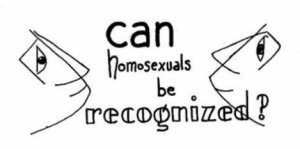Presented By: Institute for Research on Women and Gender
The History of 10 Percent
Kinsey, Harry Hay, Social Science Measurement, and the Politics of Gay Identity

This lecture is presented by Stuart Michaels,senior research scientist, Academic Research Centers, NORC at the University of Chicago
This lecture by Stuart Michaels traces the reception of the 1948 and 1953 Kinsey surveys of sexual behavior by the emerging LGBT movement in the United States. It investigates the relation between the production and consumption of scientific knowledge and sexual politics. How did Kinsey’s explicit argument against the homosexual as a separate species become the source of the widespread belief that 10 percent of the U.S. population is homosexual? Ten percent was first articulated by Mattachine founder Harry Hay in the early 1950s and coincided with a new conception of homosexuals as a minority. This talk illuminates the role of social scientific measurement in controversies and tensions around sexual identity politics, from the homophile period,
Stuart Michaels is a senior research scientist in the Academic Research Centers of NORC at the University of Chicago. His research focuses on conceptual and methodological problems in the study of sexuality, especially sexual orientation as a multidimensional construct in representative population surveys. He is a coauthor of the The Social Organization of Sexuality: Sexual Practices in the U.S., as well as numerous book chapters and peer-reviewed articles. His current research projects include a five-year longitudinal study of the effects of social networks of young black men who have sex with men on health risk/reduction practices and a project evaluating methods to improve data monitoring efforts for the national HIV/AIDS strategy in the United States. through gay liberation, to today.
This event is sponsored by LGQRI.
This lecture by Stuart Michaels traces the reception of the 1948 and 1953 Kinsey surveys of sexual behavior by the emerging LGBT movement in the United States. It investigates the relation between the production and consumption of scientific knowledge and sexual politics. How did Kinsey’s explicit argument against the homosexual as a separate species become the source of the widespread belief that 10 percent of the U.S. population is homosexual? Ten percent was first articulated by Mattachine founder Harry Hay in the early 1950s and coincided with a new conception of homosexuals as a minority. This talk illuminates the role of social scientific measurement in controversies and tensions around sexual identity politics, from the homophile period,
Stuart Michaels is a senior research scientist in the Academic Research Centers of NORC at the University of Chicago. His research focuses on conceptual and methodological problems in the study of sexuality, especially sexual orientation as a multidimensional construct in representative population surveys. He is a coauthor of the The Social Organization of Sexuality: Sexual Practices in the U.S., as well as numerous book chapters and peer-reviewed articles. His current research projects include a five-year longitudinal study of the effects of social networks of young black men who have sex with men on health risk/reduction practices and a project evaluating methods to improve data monitoring efforts for the national HIV/AIDS strategy in the United States. through gay liberation, to today.
This event is sponsored by LGQRI.